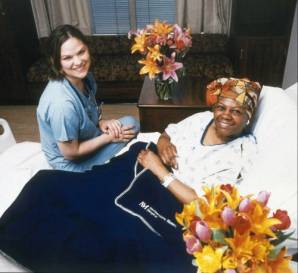|
|
CMS Charts New Three-Year Journey
Toward Quality Improvement
The Commonwealth Fund
April 13, 2005

Dramatic reductions in the number of bed sores suffered by nursing home patients and improved use by doctors' offices of computer technology to treat patients are two of the many goals outlined by Medicare in a new "scope of work" to improve the quality of care in the program.
The billion-dollar program sets goals for Medicare Quality Improvement Organizations, or "QIOs," for the three years starting in August. The Centers for Medicare and Medicaid Services (CMS) invited bids April 7 from QIOs to carry out the quality improvement work outlined in what insiders call the "eighth scope of work," the eighth such plan in the history of Medicare.
The new approach builds on the foundation laid by the current plan for gathering and reporting data on specific performance measures in nursing home, hospital, and home health care. To help providers bring up their scores on those measures, which are now reported publicly, QIOs help providers retool systems of care.
Through such efforts, nursing homes reduced the practice of tying down patients to keep them from wandering by 23 percent, for example. The new plan seeks further reductions of restraint use and better efforts to prevent bed sores, a major cause of intense suffering and death in nursing homes. Better programs to prevent and treat depression in nursing homes are another focus of the new "to do" list.
Another goal is to help doctors' offices use electronic medical records and electronic prescribing to improve the delivery of care. The aim is to help doctors get ready for new systems of performance-based payment that reward quality improvements on specific measures with higher payments.
Other specific goals of the 53 contracts to be signed with QIOs are reductions in unnecessary hospital admissions, adoption by hospitals of "highly effective" systems of care, and greater use of telemedicine by home health agencies in which patients are treated from remote locations using TV and computer technology.
"The key factor that will lead to better health care over the next decade is the effective generation and use of information about the quality of health care services," said CMS Administrator Mark B. McClellan.
|
|



